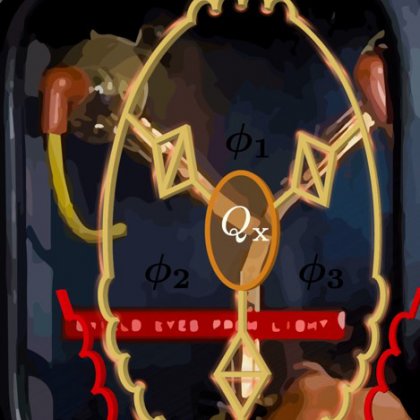Where and when would you go, if you could?
What if the dimension of time was no different from the three dimensions of space we live in? What if you could travel to the past and to the future…. the same way you can move right or left, up or down? Would you be able to change your past? And if you did, would it create a time paradox? What kind of time machine would you need to build, anyway?
This is WHAT IF, and here’s what would happen if you had a time machine.
How many times have you wished you could jump in a time machine and skip that boring meeting? Or choose a better comeback in that argument last week? Time travel sounds like some wild fantasy that only happens in sci-fi movies, but we’re actually traveling in time every day. Albert Einstein found that time is not a constant, but is continually moving forward, and we are moving forward with it. To put it simple, while you walk, not only you move in space, but also in time.
According to Einstein, time is the fourth dimension, and together with three-dimensional space it’s fused into a single four-dimensional continuum – spacetime. If you think of traveling in space, moving upwards is a bit of a challenge unless we get on a plane, or at least take the stairs. So maybe we just haven’t come up with a proper machine to travel in time yet?
The secret to time travel isn’t in some exotic form of matter. What you’d need is a spaceship that could travel almost as fast as light. Einstein’s theory of relativity taught us that the faster we move through space, the slower we move in time. Let’s assume you were in a spaceship traveling at 99.9% the speed of light – to a potentially habitable exoplanet some 40 light-years away.
You find some primitive life forms and speed back to Earth to share your discovery. But when you finally make it back to Earth, you discover that all of your colleagues are now very, very old. From your perspective, you had only been away for about two years. For people on Earth, you had been gone for 80. This phenomenon is known as time dilation. It’s not likely to happen to you though, because travelling with the speed of light isn’t quite possible with the technologies we have now. The fastest piloted vehicle we’ve ever created – Apollo 10 – reached the speed of 11,000 meters per second. The speed needed for time travel is somewhere around 299,000,000 meters per second. On top of that, accelerating at that speed would cause an enormous centrifugal force. A force that would rip you apart before you came anywhere close to light speed.
Looks like our bodies just can’t handle the speed of light.
But hey, we still have wormholes. Einstein predicted that these theoretical tunnels link two separate places and two different times. A shortcut to another universe, and to another time.nA wormhole sounds like a real-life time machine. Not that anyone has ever observed one, but even Stephen Hawking believed that there are plenty of them around us. The problem with wormholes is that they are extremely tiny – just a billion-trillion-trillionths of a centimeter across. No human would be able to pass through. I can barely fit in my jeans from last year.
If only we could capture a wormhole, we might be able to enlarge it. Imagine a giant tunnel above the Earth leading to another planet.
And, theoretically, if we put both ends of a wormhole in the same place, but in different times, we could step into a wormhole and come out in a distant past. But wormholes have their issues – they’re very short-lived, and traveling into the past would create paradoxes. Like the one in which you go back in time and convince your grandmother never to get married. You grandmother didn’t give birth to your dad, and he didn’t have you. But if you didn’t exist, who went back in time to talk your grandmother out of marrying your grandfather. Time is linear – it only goes forward. For that reason, we can only travel into the future, not the past. In fact, astronauts that spent about a year on the International Space Station are now living in the future compared to us. Even though it’s just 13 milliseconds in the future, they are proof that traveling in time is possible.
And maybe, if we get the chance to study them, wormholes could open a whole different world – where the laws of physics work in a different ways and traveling to the past is possible.
Would you dare to step into a time machine not knowing where it would take you?











































